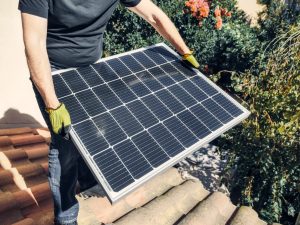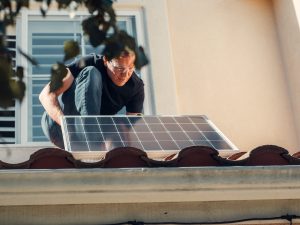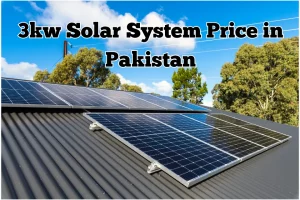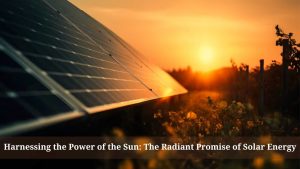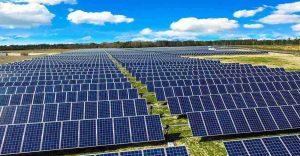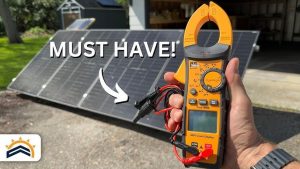Do You Really Save Money with Solar Panels?

Do You Really Save Money with Solar Panels?
Do You Really Save Money with Solar Panels?
Solar panels have become a buzzword in conversations about sustainability and costeffective energy solutions. As our world grapples with the impacts of climate change individuals and businesses alike are exploring ways to reduce their carbon footprint while also saving money. In this article we’ll delve into the intriguing question: Do you really save money with solar panels?
Introduction
- Brief overview of solar panels
Solar panels or photovoltaic cells are devices that convert sunlight into electricity. They have gained significant popularity in recent years as a clean and renewable energy source.
- Growing popularity of solar energy
The global shift toward sustainable practices has fueled the adoption of solar energy. Governments businesses and homeowners are increasingly turning to solar panels to meet their energy needs.
How Solar Panels Work
- Photovoltaic process
At the heart of solar panels is the photovoltaic process. When sunlight hits the solar cells it generates an electric current creating a direct current DC.
- Conversion of sunlight into electricity
The DC is then converted into alternating current AC by an inverter making it compatible with standard electrical systems. This electricity can be used to power homes businesses or be fed back into the grid.
The Initial Cost Dilemma
- Upfront expenses
One of the primary concerns for potential solar panel adopters is the initial cost. Installing a solar panel system can be a significant investment deterring many from taking the plunge.
- Longterm savings perspective
However it crucial to view this as a longterm investment. The initial cost can be offset by substantial savings in electricity bills and various financial incentives.
Government Incentives
- Tax credits and rebates
Governments around the world offer tax credits and rebates to encourage the adoption of solar energy. These incentives can significantly reduce the upfront cost of installing solar panels.
- Financial assistance programs
In addition to tax incentives there are various financial assistance programs that provide grants or lowinterest loans for solar projects. These programs aim to make renewable energy accessible to a broader audience.
Energy Savings
- Reducing electricity bills
One of the most tangible benefits of solar panels is the reduction in electricity bills. By generating your electricity you become less dependent on traditional power sources resulting in longterm savings.
- Environmental impact
Beyond the financial aspect using solar energy contributes to a cleaner environment by reducing reliance on fossil fuels and lowering greenhouse gas emissions.
Return on Investment ROI
- Calculating ROI for solar panels
Calculating the return on investment for solar panels involves considering the initial cost energy savings and available incentives. Despite the initial investment the longterm financial benefits often outweigh the costs.
- Longterm financial benefits
Solar panels typically have a lifespan of 25 to 30 years. As technology advances the efficiency and durability of solar panels continue to improve enhancing their longterm financial viability.
Maintenance Costs
- Minimal maintenance requirements
Contrary to common misconceptions solar panels have minimal maintenance requirements. Regular cleaning and occasional checks are usually sufficient to ensure optimal performance.
- Costeffectiveness in the long run
When compared to the ongoing costs of traditional energy sources the minimal maintenance costs of solar panels contribute to their overall costeffectiveness in the long run.
The Advancements in Solar Technology
- Efficiency improvements
Ongoing advancements in solar technology have led to increased efficiency in converting sunlight into electricity. This efficiency improvement translates to better performance and higher energy yields.
- Integration with smart home systems
Modern solar panel systems often integrate with smart home systems allowing users to monitor and optimize their energy consumption. This level of control enhances the overall efficiency of the solar energy setup.
Evaluating Your Location
- Sunlight availability
The effectiveness of solar panels depends on sunlight availability. Evaluating your location and understanding the sunlight exposure can help determine the feasibility of a solar panel installation.
- Geographic considerations
Certain geographical factors such as climate and shading can impact the performance of solar panels. Consulting with professionals can provide insights into the specific conditions of your location.
The Myth of Dependence on Sunlight
- Storage solutions
Addressing concerns about dependence on sunlight advancements in energy storage solutions such as batteries enable the storage of excess energy for use during cloudy days or nighttime.
- Addressing concerns about cloudy days
Modern solar panel systems are designed to operate efficiently even on cloudy days. While direct sunlight optimizes performance solar panels can still generate electricity under diffuse light conditions.
Environmental Impact
- Reducing carbon footprint
One of the significant advantages of solar panels is their role in reducing the carbon footprint. By harnessing clean and renewable energy solar panels contribute to a more sustainable and ecofriendly future.
- Contribution to a sustainable future
Embracing solar energy is not just a personal benefit; it a collective step towards a sustainable future. The cumulative impact of widespread solar panel adoption can significantly reduce our reliance on nonrenewable resources.
Debunking Common Myths
- High maintenance costs
Dispelling the myth of high maintenance costs the reality is that solar panels have minimal upkeep requirements making them a costeffective and lowmaintenance energy solution.
- Incompatibility with certain roof types
Contrary to belief solar panels can be installed on various roof types. With flexible mounting options professionals can tailor installations to suit different architectural styles.
Case Studies
- Reallife examples of savings
Exploring reallife case studies showcases how individuals and businesses have realized substantial savings through solar panel installations.
- Success stories in different regions
Highlighting success stories from different geographical regions emphasizes the adaptability and effectiveness of solar panels in diverse environments.
Making an Informed Decision
- Weighing pros and cons
Ultimately making an informed decision about solar panels involves weighing the pros and cons. Considering factors like location financial incentives and longterm savings can guide individuals toward a sustainable choice.
- Consulting with professionals
To navigate the complexities of solar panel installations consulting with professionals ensures personalized advice tailored to specific needs and circumstances.
Final Word
- Summarizing key points
In the question of whether you really save money with solar panels is nuanced. While the initial cost may seem daunting the longterm financial benefits coupled with environmental advantages and government incentives make solar panels a compelling investment.
- Encouraging sustainable choices
Embracing solar energy is not just a financial decision; it a commitment to sustainability. By choosing solar panels individuals contribute to a cleaner planet and a more sustainable future.
FAQs
- Are solar panels worth the initial investment?
Solar panels are a longterm investment that offers substantial savings over time making them worth the initial cost.
- Do solar panels work on cloudy days?
Yes modern solar panels can generate electricity even on cloudy days although direct sunlight optimizes their performance.
- What government incentives are available for solar panel installations?
Government incentives include tax credits rebates and financial assistance programs aimed at reducing the upfront cost.
- How long do solar panels last?
Solar panels typically have a lifespan of 25 to 30 years providing a reliable and durable energy solution.
- Can solar panels be installed on any roof type?
Yes solar panels can be installed on various roof types thanks to flexible mounting options and professional customization

Source of Image: https://www.pexels.com/photo/stack-of-old-golden-and-silver-coins-3222683/
